Conceived in Rape
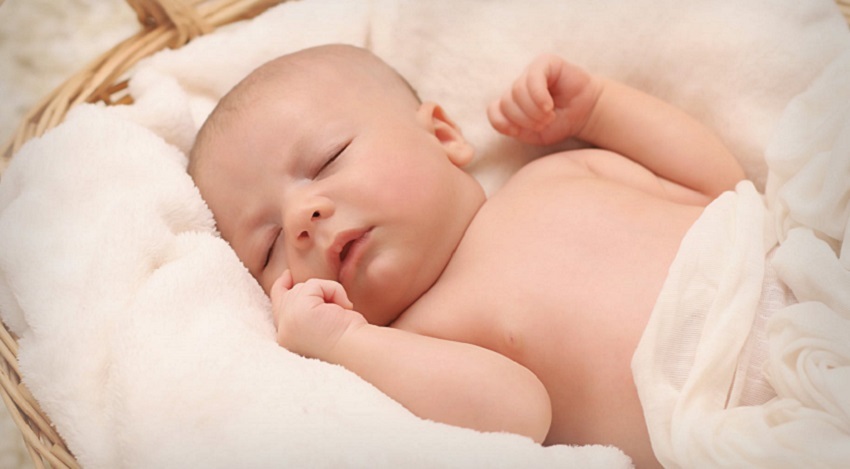
Children conceived in rape
Those encouraging abortion for rape victims often do so because they are uncomfortable dealing with the issue. We are encouraged to think that destroying the baby 'solves the problem'. It's seen as a "quick fix" but it avoids dealing with the woman's true emotional, social and financial needs.
The voices of rape victims all too-often go unheard. According to Kathleen DeZeeuw,
I, having lived through rape, and also having raised a child conceived in rape, feel personally assaulted and insulted every time I hear that abortion should be legal because of rape and incest. I feel that we're being used by pro-abortionists to further the abortion issue, even though we've not been asked to tell our side.
We have examined the issues of pregnancy through rape in the issues section of 'abortion' and in the sexual assault section of 'women'. In this section, we look at the issue from the view of the child; by giving a voice to children who were conceived through rape and lived.
We must recognize that the children conceived through sexual assault have a voice which deserves to be heard. Julie Makimaa, conceived by an act of rape, works diligently against the perception that abortion is acceptable or even necessary in cases of sexual assault. While naturally sympathetic to the suffering her mother endured at the hands of her attacker, Julie is also rightfully proud of her mother's courage and generosity. Regarding her own view of her origin, Julie proclaims: "It doesn't matter how I began. What matters is who I will become."
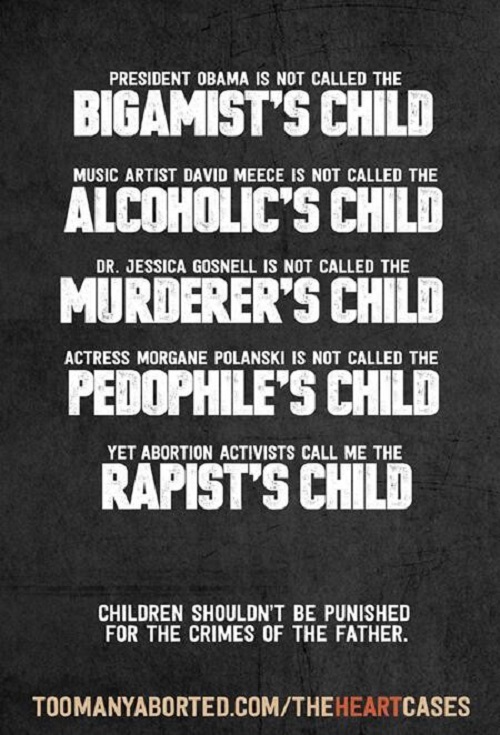
My mother chose life: Children conceived in rape

Ryan Bomberger
Ryan has a unique perspective of the innate nature of purpose. His biological mother was raped yet chose to go through 9 months of pregnancy, choosing to give him Life. He was adopted as a baby and grew up in a loving, multi-racial Christian family of 15, which gave him a great appreciation for diversity. Ten of the thirteen children were adopted in this remarkable family.

Layne Beachley - 7 time world champion surfer
Layne Beachley's mother Maggie Gardner was 17, and newly arrived in Sydney from Scotland in 1971. She was date-raped after she accepted a dinner invitation from the manager of a Kings Cross modelling agency. Layne was adopted by a North Balgowlah couple and grew up on Manly Beach in Australia. In December 1999, she announced she had found her birth mother; her six straight world titles ensured the story was widely reported in the media.
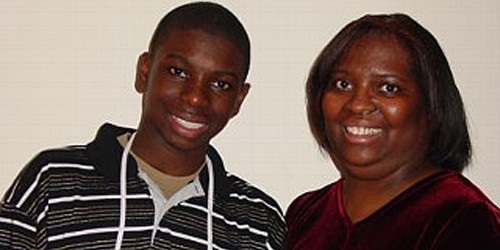
Mika Scott
Kimberley Scott was raped while her husband was away deployed for the US marines. She choose life for her baby boy, Mika.
Read more about Kimberley and Mika Scott here...

Kelly Wright- TV Presenter
Former Fox & Friends Weekend co-anchor Kelly Wright wrote about his mother's decision to give birth to him despite having conceived him in rape. In his book "America's Hope in Troubled Times." Wright describes how his mother was raped when she was 16 years old, and how he was the result of that rape.
Read more about Kelly Wright here...
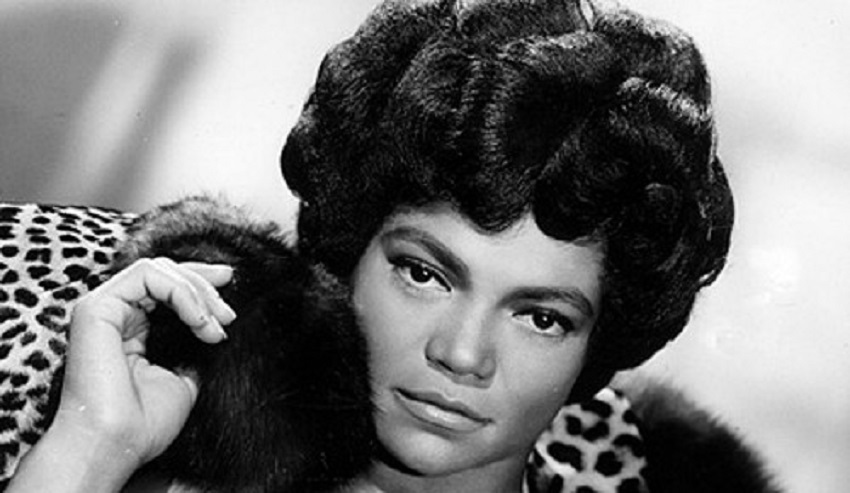
Eartha Kitt - Jazz Singer
Born on January 17 1927 on a cotton plantation in South Carolina, Eartha Kitt was raised by a woman called Anna Mae, who she believed was her mother. The singer later said that her father was the white son of the plantation owner, and that she had been conceived by rape. Named Eartha after the year's good crop, she lived with Anna Mae in grinding poverty until her mother met a new husband who rejected the mixed race child.
Read more about Eartha here...

Valerie Gatto
When the 2014 Miss Pennsylvania, Valerie Gatto, was in third grade, she found out the difficult truth that she had been conceived when her mother was raped at knifepoint. Gatto’s mother was only 19 years old when the attack occurred. Her assailant had plans to murder her as well, but says those plans were thwarted when a bright light from an unknown source appeared. This light gave Gatto’s mother the ability to get up and run away before he could do further harm to her. Gatto says, “I like to think of that light as my mother's and (my) guardian angel.”
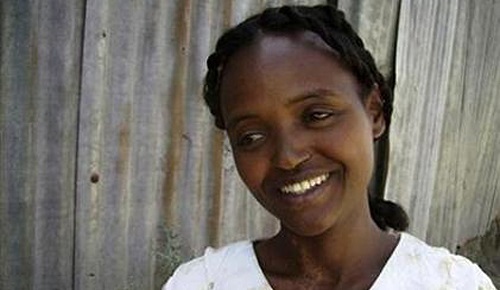
Angelina Jolies adopted daughter
Mentwabe Dawit, the mother of an Ethiopian baby adopted by Angelina Jolie, smiles in the southern city of Awasa, November 17, 2007. Mother of two-year-old Zahara, described how she was attacked one evening in 2004 after a day's work at a construction site in the southern Ethiopian town of Awasa. As she walked home in the darkness, a man approached. "He pulled a dagger, put one hand on my mouth, so that I could not scream. He then raped me and disappeared," Mentwabe told Reuters in an interview, tears streaming down her face. The 24-year-old decided to keep the assault a secret.
Llanna Rebolledo
Lianna Rebolledo, a Mexican woman who became pregnant when she was 13 after being raped, talks about the past 20 years, the gift her daughter has been to her, and how she never considered having an abortion.
Read more on Lianna Rebolledo here...

Patricia Hamlin
Patricia Hamlin went looking for her birth mother and discovered later that she had been conceived in rape. She was reunited with her mother when she was 71 and her mother was 90.
Read more of Patricia's story here...
Gary Moore
Gary Moore would not be alive today if his mum hadn’t chosen to continue with her pregnancy in the face of severe family pressure to abort. His grandparents did not want her to have the baby. “She was told quite plainly to have me aborted,” said Gary. His mother refused, and was told to leave the family home. Moving away was a decision that he recognises “must have been incredibly tough for her when the other option was to have me aborted and stay at home”.
Read more of Gary's story here...

Martin Sheen's wife, Janet Sheen
Martin Sheen was interviewed by Gay Bryne for "The Meaning of Life" and he told of his opposition to abortion. He also relayed how his wife Janet was conceived in rape.
Young woman who have been raped
Listen to the testimonies of women pregnant as a result of rape in the following Youtube videos.
Ken
A man named Ken recently called in to a Washington, D.C., radio talk show discussing the question of abortion after rape. In the midst of a politically charged discussion, his personal story caught the host off guard. Ken explained that he was adopted as an infant, and at age 30, located his birth mother and learned the circumstances of his conception.

Kristi Hofferber
I was given the gift of life in a difficult circumstance, and believe that every child conceived deserves the same -without exception.
Read more on Kristi's story here...

Julia Schoch's daughter
My daughter, whom I adopted, was conceived in rape. Her birth mother was only 13 years old. She said she was told by the abortion clinic staff that “no one will want a biracial rapist’s baby.” They refused to let her see the ultrasound picture and, although she was 20 weeks pregnant, told her that her baby wasn’t formed yet. They also told her that she was “too young” and would die if she tried to have the baby.
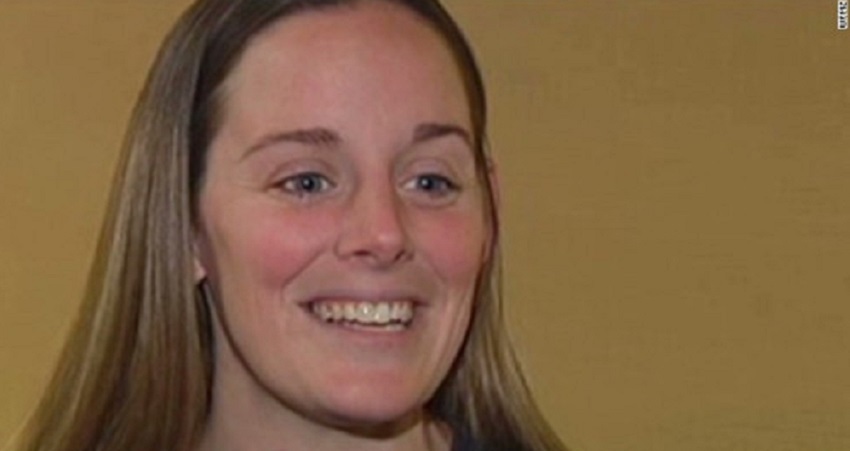
Katheryn Depril
She was called the “Burger King Baby.” Abandoned in a fast food restroom when she was just three hours old, Katheryn Deprill launched a viral campaign to find her birth mother earlier this month. On Monday, she came face-to-face with a woman she describes as “very loving,” and learned why the woman felt she had no choice but to leave her baby in a public place.
Travon
Travon's life was turned upside down when she learned the circumstances of her conception. Conceived in rape, Travon asked her mother why she wasn't aborted. Travon’s mother saw her not as a "rape baby," but as a separate human being who needed protection.
Mary
Some people say babies conceived in rape should be aborted. Mary thinks about herself when she hears those comments; she wouldn't be here, her children wouldn't be here because she was conceived in rape. Mary knows that her life was not an accident.
Conceived in Rape: Documentary
Watch these interviews from women who have been raped and those who were conceived through rape. Stories of inspiration, love and courage.
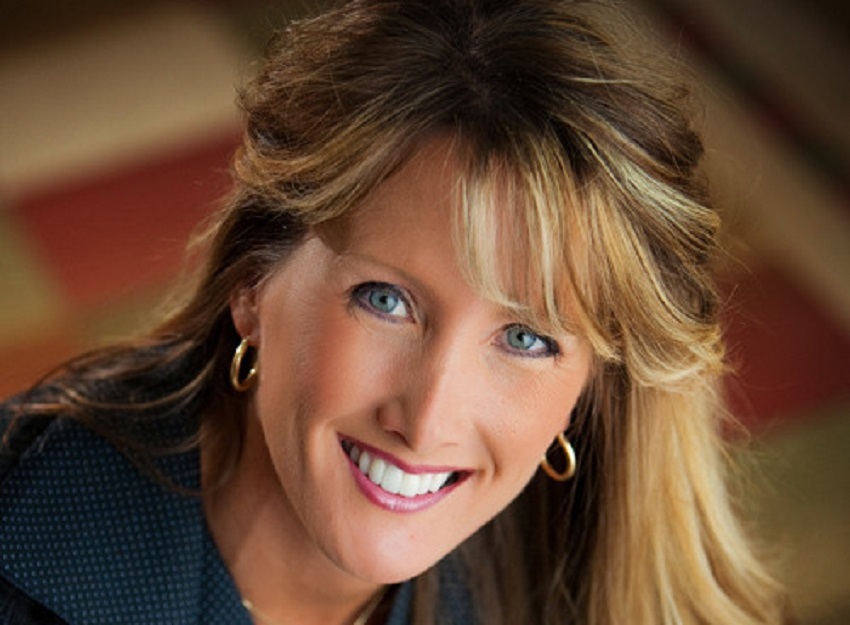
Rebecca Kiessling
Rebecca's testimony
I was adopted nearly from birth. At 18, I learned that I was conceived out of a brutal rape at knife-point by a serial rapist. Like most people, I'd never considered that abortion applied to my life, but once I received this information, all of a sudden I realized that, not only does it apply to my life, but it has to do with my very existence. It was as if I could hear the echoes of all those people who, with the most sympathetic of tones, would say, "Well, except in cases of rape. . . ," or who would rather fervently exclaim in disgust: "Especially is cases of rape!!!" All these people are out there who don't even know me, but are standing in judgment of my life, so quick to dismiss it just because of how I was conceived. I felt like I was now going to have to justify my own existence, that I would have to prove myself to the world that I shouldn't have been aborted and that I was worthy of living. I also remember feeling like garbage because of people who would say that my life was like garbage -- that I was disposable.
Please understand that whenever you identify yourself as being "pro-choice," or whenever you make that exception for rape, what that really translates into is you being able to stand before me, look me in the eye, and say to me, "I think your mother should have been able to abort you." That's a pretty powerful statement. I would never say anything like that to someone. I would never to someone, "If I had my way, you'd be dead right now." But that is the reality with which I live. I challenge anyone to describe for me how it's not. It's not like people say, "Oh well, I'm pro-choice except for that little window of opportunity in 1968/69, so that you, Rebecca, could have been born." No -- this is the ruthless reality of that position, and I can tell you that it hurts and it's mean. But I know that most people don't put a face to this issue. For them, it's just a concept - a quick cliché, and they sweep it under the rug and forget about it. I do hope that, as a child of rape, I can help to put a face and a voice to this issue.
I've often experienced those who would confront me and try to dismiss me with quick quips like, "Oh well, you were lucky!" Be sure that my survival has nothing to do with luck. The fact that I'm alive today has to do with choices that were made by our society at large, people who fought to ensure abortion was illegal in Michigan at the time - even in cases of rape, people who argued to protect my life, and people who voted pro-life. I wasn't lucky. I was protected. And would you really rationalize that our brothers and sisters who are being aborted every day are just somehow "unlucky"?!!
Although my birth mother was thrilled to meet me, she did tell me that she actually went to two back-alley abortionists and I was almost aborted. After the rape, the police referred her to a counselor who basically told her that abortion was the thing to do. She said there were no crisis pregnancy centers back then, but my birth mother assured me that if there had been, she would have gone if at least for a little more guidance. The rape counselor is the one who set her up with the back-alley abortionists. For the first, she said it was the typical back-alley conditions that you hear about as to why "she should have been able to safely and legally abort" me -- blood and dirt all over the table and floor. Those back-alley conditions and the fact that it was illegal caused her to back out, as with most women.
Then she got hooked up with a more expensive abortionist. This time she was to meet someone at night by the Detroit Institute of Arts. Someone would approach her, say her name, blindfold her, put her in the backseat of a car, take her and then abort me . . . , then blindfold her again and drop her back off. And do you know what I think is so pathetic? It's that I know there are an awful lot of people out there who would hear me describe those conditions and their response would just be a pitiful shake of the head in disgust: "It's just so awful that your birth mother should have had to have gone through that in order to have been able to abort you!" Like that's compassionate?!! I fully realize that they think they are being compassionate, but that's pretty cold-hearted from where I stand, don't you think? That is my life that they are so callously talking about and there is nothing compassionate about that position. My birthmother is okay - her life went on and in fact, she's doing great, but I would have been killed, my life would have been ended. I may not look the same as I did when I was four years old or four days old yet unborn in my mother's womb, but that was still undeniably me and I would have been killed through a brutal abortion.
According to the research of Dr. David Reardon, director of the Elliot Institute, co-editor of the book Victims and Victors: Speaking Out About Their Pregnancies, Abortions and Children Resulting From Sexual Assault, and author of the article "Rape, Incest and Abortion: Searching Beyond the Myths," most women who become pregnant out of sexual assault do not want an abortion and are in fact worse-off after an abortion.
So most people's position on abortion in cases of rape is based upon faulty premises:
1) the rape victim would want an abortion,
2) she'd be better off with an abortion
3) that child's life just isn't worth having to put her through the pregnancy. I hope that my story, and the other stories posted on this site, will be able to help dispel that last myth.
I wish I could say that my birth mother was with the majority of victims and that she didn't want to abort me, but she had been convinced otherwise. However, the nasty disposition and foul mouth of this second back-alley abortionist, along with a fear for her own safety, caused her to back out. When she told him by phone that she wasn't interested in this risky arrangement, this abortion doctor insulted her and called her names. To her surprise, he called again the next day to try to talk her into aborting me once again, and again she declined and was hurled insults. So that was it -- after that she just couldn't go through with it. My birth mother was then heading into her second trimester - far more dangerous, far more expensive to have me aborted.
I'm so thankful my life was spared, but a lot of well-meaning Christians would say things to me like, "Well you see, God really meant for you to be here!" Or others may say, "You were meant to be here." But I know that God intends for every unborn child to be given the same opportunity to be born, and I can't sit contentedly saying, "Well, at least my life was spared." Or, "I deserved it. Look what I've done with my life." And millions of others didn't? I can't do that. Can you? Can you just sit there and say, "At least I was wanted . . . at least I'm alive . . . ," or just, "Whatever!"? Is that really the kind of person who you want to be? Cold-hearted? A facade of compassion on the exterior, but stone-cold and vacated from within? Do you claim to care about women but couldn't care less about me because I stand as a reminder of something you'd rather not face and that you'd hate for others to consider either? Do I not fit your agenda?
In law school, I'd also have classmates say things to me like, "Oh well! If you'd been aborted, you wouldn't be here today, and you wouldn't know the difference anyway, so what does it matter?" Believe it or not, some of the top pro-abortion philosophers use that same kind of argument: "The fetus never knows what hits him, so there's no such fetus to miss his life." So I guess as long as you stab someone in the back while he's sleeping, then it's okay, because he doesn't know what hits him?! I'd explain to my classmates how their same logic would justify "me killing you today, because you wouldn't be here tomorrow, and you wouldn't know the difference anyway, so what does it matter?" And they'd just stand their with their jaws dropped. It's amazing what a little logic can do, when you really think this thing through - like we were supposed to be doing in law school - and consider what we're really talking about: there are lives who are not here today because they were aborted. It's like the old saying: "If a tree falls in the forest, and no one is around to hear it, does it make a noise?" Well, yeah! And if a baby is aborted, and no one else is around to know about it, does it matter? The answer is, "YES! Their lives matter. My life matters. Your life matters and don't let anyone tell you otherwise!
The world is a different place because it was illegal for my birth mother to abort me back then. Your life is different because she could not legally abort me because you are sitting here reading my words today! But you don't have to have an impact on audiences for your life to matter. There is something we are all missing here today because of the generations now who have been aborted and it matters.
One of the greatest things I've learned is that
the rapist is NOT my creator, as some people would have me believe. My value and identity are not established as a "product of rape," but a child of God. Psalm 68:5,6 declares: "A father to the fatherless . . . is God in his holy dwelling. God sets the lonely in families." And Psalm 27:10 tells us "Though my father and mother forsake me, the Lord will receive me." I know that there is no stigma in being adopted. We are told in the New Testament that it is in the spirit of adoption that we are called to be God's children through Christ our Lord. So He must have thought pretty highly of adoption to use that as a picture of His love for us!
Most importantly, I've learned, I'll be able to teach my children, and I teach others that your value is not based on the circumstances of your conception, your parents, your siblings, your mate, your house, your clothes, your looks, your IQ, your grades, your scores, your money, your occupation, your successes or failures, or your abilities or disabilities - these are the lies that are perpetuated in our society. In fact, most motivational speakers tell their audiences that if they could just make something of themselves and meet this certain societal standard, then they too could "be somebody." But the fact is that no one could ever meet all of these ridiculous standards, and many people will fall incredibly short and so, does that mean that they're not "somebody" or that they're "nobody?" The truth is that you don't have to prove your worth to anyone, and if you really want to know what your value is, all you have to do is look to the Cross - because that's the price that was paid for you life! That's the infinite value that God placed on your life! He thinks you are pretty valuable, and so do I. Won't you join me in affirming others' value as well, in word and in action?
For more information on Rebecca's life and work log onto
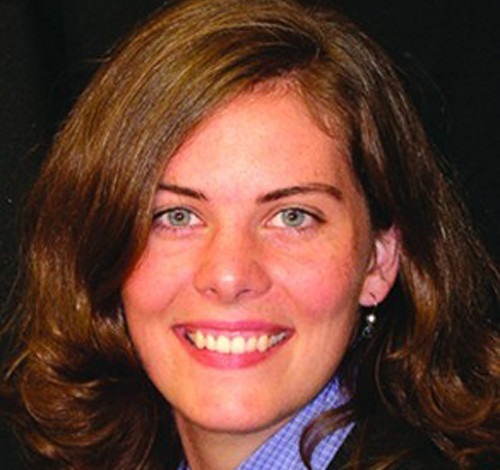
Jenni Maas
Jenni's testimony
I first began to recognize that I had a story to tell when I was attending a public Junior High school in Forest Lake, MN. Frequently the abortion topic would come up with friends and on occasion teachers would talk about why abortion should remain legal. I would always cringe a little when they would say, "I don't like abortion. I think it is wrong . . . except in cases of rape and incest," or "We really have to keep abortion legal for cases of rape and incest."
My mom had slowly been revealing the circumstances of my conception to me over the years and by the time I was 13, I understood and had come to grips with the reality that my father was, essentially, a rapist. He was 18, as was my mother, at the time of my conception. Though he had most likely acted out of a dare by his friends, he had violated my mother against her will.
When my mom found out she was pregnant with me, the only advice she was given was to discard the "products of conception." She explains how she was never offered support to keep me, though this is where her heart was leading her. Needless to say, I am eternally grateful that she heeded that still, small voice in her heart that told her the life growing within her had a purpose and did not deserve death.
When the topic of rape and incest came up throughout junior high and high school, I would usually first try to appeal to reason saying: "Why don't you like abortion? What is wrong with it?" When they would answer "Because, it's a life" some would immediately recognize the double standard and relent. Most of the time, however, even when faced with their own illogical statements, they would still persist with emotional arguments: "You can't make a woman go through with a pregnancy like that." Though it is an unjust and heart wrenching scenario to consider, it must be dealt with, and so I would tell them our story. Only once in high school did a person who heard this story turn away cold-faced. Every other person who was confronted with "a face" allowed their heart to melt at the truth of the matter-God has a plan for everyone!
As my husband and I anticipate the birth of our own baby soon, I am continually discovering God's magnificent plan, not only for my life, but also for every life that he calls into existence. It is crucial that every citizen realize that a person's dignity is not founded in whether or not one is wanted, as abortion peddlers and legislators would like them to believe. A person's dignity is founded in the reality that persons are created in the image and likeness of God. The circumstance of my conception or yours does not determine the quality of our lives.
Young people across the nation and around the world are increasingly recognizing the double standards of abortion rhetoric. They see that all the promises of the so-called "sexual revolution" are coming up empty. Young people are renewing the pro-life movement with an enthusiastic determination to bring about a "Culture of Life."
By the grace of God, my mom (and I) were spared the life-long, direct agony that abortion brings. However, when you consider Planned Parenthood's grisly statistic that 40% of all women in the U.S. will have an abortion by the age of 40 (mothers, daughters, aunts, grandmothers, granddaughters, cousins, wives) every American citizen has been touched by the grief of abortion directly or indirectly. Therefore, every one of us has an obligation to stand up! I am thrilled to be a part of the generation that WILL turn the cultural tide so that following generations will be spared this unjust suffering.
Julie Makimaa
Julie's testimony
Julie Makimaa grew up in Southern California with a loving family that adopted her out of a foster home when she was eight months old. She is now married with two children, ages 14 and 12, and lives in Indiana. With the support of her husband and parents, Makimaa undertook a search for the woman who had placed her in an adoptive family. On her 21st birthday, she was reunited with her birth mother, Lee Ezell, and learned for the first time the circumstances of her conception.
Ezell was the daughter of an alcoholic father who was so abusive that her mother had to flee with their children to another state. She was 18 years old and holding down a job when she was raped by a man who worked for the same company. "When the assault happened," Makimaa said, "she felt that this was her lot in life, that violence was something that followed her." A friend offered to take Ezell to Mexico for an illegal abortion (Choosing Life: Journeys of Hope Born from Tragedy). Though she considered it, the prospect was too daunting. Instead, after her mother told her to leave home, she moved to Southern California, where she was taken in by a couple she met at a church. She decided to place her baby for adoption. After the birth of her daughter - whom Lee was not allowed to see or hold - she went on to college and eventually married a widower with two daughters.
Makimaa says, "I asked her, 'Why would you want to even see me, then? How could you want to even be a part of my life?' And she said, 'You know, you don't remind me of the assault at all. You remind me of the good thing that happened out of that tragedy that I went through. And you are my daughter, and I want to have a relationship with you.' And this was the message: It was a terrible thing that happened to her, but I and my children are here today because she sacrificed those months of her life to give us a lifetime."
The news that her birth father had raped her birth mother was, of course, a shock to Makimaa. "I had a lot of questions to ask myself about who I was and what did the assault mean to me. I had to ask myself if I somehow had an evil gene from my father. I had to really look at my own life and say, 'What does this mean to me? And does this change the person that I am?'
"I know that my conception and the circumstances surrounding it are not what's important to me. I would never wish an assault like that on anyone but I realize that that has no bearing on the person that I am, and the value of my life. The people who love me still love me the same, it doesn't matter to them. But it has given me a greater appreciation for things. I don't take my life for granted."
Although Makimaa had long been active in the pro-life movement - she currently works for Life Athletes, an organization that arranges for pro-life professional and Olympic athletes to speak to students - she says that the news of her own history caused her to examine her ideas about cases of rape. "Most people do not think, 'Well, I could have been aborted,' but I do think how easily my life could have been ended and the lives of my children. Sometimes when my mother and I are together we just sort of look at each other and know that our story could have been so different, and what a tragedy that would have been. I wasn't planned, but I was loved.
"I think most people believe that a woman pregnant in this situation will never love her child and cannot bear to carry the child to term and that somehow the abortion will help them, that it will be beneficial for them to abort the child. But I believe that from what we know about post- abortion aftermath, women who suffer depression and guilt and anger over the rape only have those feelings compounded by guilt and depression and self-directed anger after an abortion.
"And for me, when I found out my own circumstances, I finally had to ask myself whether I thought an abortion would have been beneficial for my birth mother. I realized that if she had aborted, our reunion and life together now would have all been lost, and the happiness my mother enjoys with me, she would have missed.
"My mother was a victim of an assault, but she did not choose to victimize me. I was not given the death penalty for the crime of my father. I was given the greatest gift that any of us could give - life."
As a result of her experiences, Makimaa founded Fortress International, a support organization for women pregnant through assault and children conceived in assaults. She is now working on a book. The primary lesson she has learned, she says, is that "none of us gets to choose our parents and how we're conceived, but even in the worst of circumstances, good things can happen."

Jennifer Bowman
The Forgotten Victims of Rape
"Don't equate us to the act that brought us here."
Jennifer Bowman is slim and smiling, with three beautiful children. You wouldn't know by looking at her that she is somebody who has some unusual connections with rape. She says that there are victims of rape and there are forgotten victims of rape. She has set up a web site as a refuge and support group for what she calls the forgotten victims of rape, the children who result from the act of rape. She is one of them, a child conceived in rape.
Jennifer says that people have strange conceptions of children of rape. She says, "They see us as someone to be pitied. They think we will be deformed, that we will be failures in life, that we have evil genes, and that we are just waiting to wreak havoc on our birth mothers who are trying to get on with life." What a stigma!
Adopted as an infant, she says she has had problems with self-esteem since she found out at the age of eighteen that she was conceived in rape. After all, she says, if your father did such a terrible, disgusting act and you resulted from that act, how can you be worth anything?
When she was eighteen and with the blessings of her adoptive parents, she had begun a search for her birth mother. That's when she found out that she was a child of rape. It was in some of the adoption papers. "It was a shock," she says. "It made me all the more determined to find my mother so she could tell me it was a mistake. But it wasn't."
Her mother says, "I didn't go looking for her. I was leaving it completely up to her. But I remembered her birthday every year, and I figured that when she was 18 she would come looking for me."
They were happy to find each other. We talked on Jennifer's most recent visit to her mother's house, where Jennifer's children were enjoying the spoiling that only a grandmother can give. Jennifer is grateful for her mother's welcoming warmth and she is amazed at all the help her mother has given her in researching court documents. She says, "I really don't know anything about my black roots. My mother is white and I was raised in a white family. It's important to me to find out about the half of me that's black. It speaks volumes about my mother's character that she will help me so actively with this. She's just wonderful."
Jennifer is definitely pro-life. We asked her about the popular opinion that rape victims should be given abortions, that it's the kindest thing one can do for the baby. Jennifer's reply was adamant. She doesn't think anybody should have had the right to kill her as a fetus. "It's like a mercy killing. I don't want people who are not in my circumstances making decisions for me. It's my right to decide whether to be alive or not."
Looking at the life she has now, she doesn't think that anybody should pass judgment on her quality of life. "I wish people would stop equating us to the act that brought us here."
She adds that coming to terms with a traumatic event like rape is very difficult, and a pregnant rape victim may honestly feel that she cannot love the child the way a child should be loved. The truly loving response is adoption. She is personally grateful for her wonderful adoptive parents as well as the birth mother who welcomed her back.
Society doesn't know how to deal with children who are the result of rape. The mixed messages that Jennifer gets would confuse anybody. One lady, for instance, made some terribly derogatory comments about the children of rape and was saying that those babies absolutely should be aborted. Finally, Jennifer said, "Excuse me, but I'm one of those children." The woman immediately said, "Oh, but that has no bearing on you."
Jennifer's struggles with those mixed messages has led her to set up a website for people like herself, people who are children of rape. She says, "There's comfort in numbers. I felt that I was alone, that I was strange in some way. I wanted to have this website so people would have a place to go."
You can go to the public part of her website to get some information about the group, but most of the website is private. Jennifer says, "There are some people who are just curious. Right now there are about 20 members. Some are children of rape, some are the mothers of children of rape. We have some children of incest, too. It's kind of cozy, at this point, because it's small."
You can write to her at:
StigmaP.O. Box 145Spring Hill, KS 66083
And for the rest of us, we can remember that people like Jennifer don't wear a sign that says, "I was conceived in rape." So we may not be able to help a lot. We may not ever know that we could have told them about Jennifer's website. But we can make sure that in our conversations we do not equate "the forgotten victims of rape" with the act that brought them here.
We can instead reaffirm the basic value of every human being and their right to live. We can work to protect innocent human life from conception to natural death.